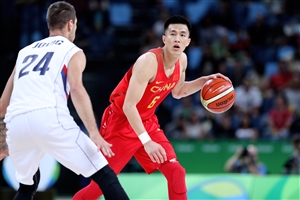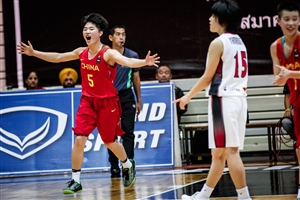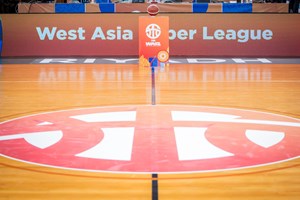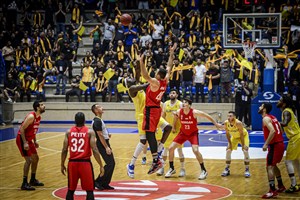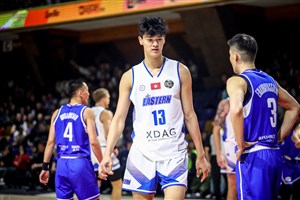
Kim SunHyung believes Korea need stronger frontline for 2017 success
SEOUL (FIBA Asia Cup 2017) - One of the highlights of Kim SunHyung's international career happened in the FIBA Asia Championship 2013 when, during Korea's group stage game against China, he stole the ball, drove down the length of the court, and slammed one home despite Yi Jianlian's defensive challenge.
SunHyung has been a mainstay for the Korean national team in the years that followed. He played in the FIBA Basketball World Cup 2014 and once again in the FIBA Asia Challenge 2016, where he was the team’s second-leading scorer with 9.4 points per game. He is currently among the best point guards in the Korean Basketball League (KBL), averaging 14.9 points, 6.8 assists, 4.0 rebounds and 1.5 steals per outing for the Seoul SK Knights, and this augurs well for his chances of being selected to be, once again, part of Korea’s team for the FIBA Asia Cup 2017 and the qualifiers for the FIBA Basketball World Cup 2019 in China.SunHyung, however, knows that for his country to make waves in international scene and return to the top tier of Asian basketball, they will need more than his ball-handling wizardry and scoring flair. He is aware of the fact that Korea’s main weakness has been their inside play, and that the only way to really rectify this is to secure the services of top-level big men, even if it means turning to naturalization.
SunHyung clarified this when he talked to FIBA.com.
FIBA.com: With the FIBA Asia Cup 2017 coming up next year, what improvements should be made to the Korean team to challenge the likes of Iran and China?
SunHyung: The most important thing is to improve our low post presence. Right now, we are focusing on drills that make us more dangerous on the fastbreak.
FIBA.com: Playing the FIBA Asia Challenge 2016 Final in Iran was Korea's first for some time now; why were Korea not playing much in the Finals in the last decade?
SunHyung: The hardest challenge for us has always been to secure good big men against the likes of China and Iran. There is no doubt that Iran and China have been on top level for the last few years as they have the best big men in Asia, and some Middle East countries have also improved their performance with naturalized players. To get back at the top level, there are two options for us: vastly improve our local big men or secure a naturalized player.
SunHyung: The New Competition System will significantly improve the sport’s exposure to fans. Having regular official national team games to be played at home gives us a chance to generate new interest for basketball.
FIBA

